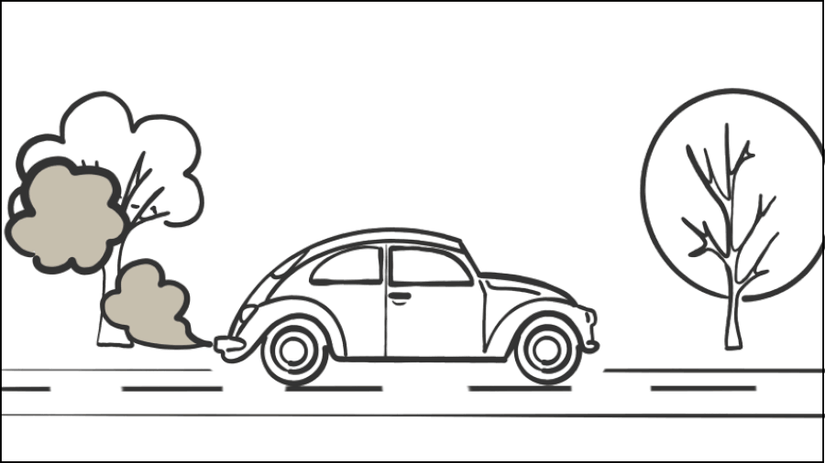The PocketLab
Difference
5 Real-World Classroom Examples
powered by PocketLab
Watch student's curiosity for the world around them blossom when they're able to collect real-time data with fun and easy to use tools.
PocketLab's free industry-leading curriculum delivery platform, PocketLab Notebook, provides context and structure to activities, while wireless, easy to use, multi-function sensors make student-led data collection and analysis part of their everyday - anywhere!
Read on to see how educators like you use PocketLab.
"We just finished our first year with PocketLab sensors, and we LOVE them... exactly what we were looking for in terms of durability, ease of use, and functionality. The math department was as excited as we were to see students collecting, and analyzing their own data!"
- Bekah H., Middle School Science Department Chair, Nashville, TN
Uncovering the Impacts of Urban Climate Change
Understanding Heat Islands
Urban areas often have the “urban thermal effect,” where buildings and concrete absorb and re-emit the sun’s heat, forming “heat islands” that can be up to 7°F hotter than nearby green spaces. This effect also occurs in non-urban areas with high concrete concentrations.
Classroom Connection
UrbanHeatATL, a community of educators and students in Atlanta, Georgia, are using PocketLab sensors to study urban heat islands. By measuring temperature differences around school buildings and surrounding green spaces, they gain valuable insights into the effects of climate change. This project can be easily replicated in your school, as demonstrated by Thomas County High School.
Investigate heat islands with your class using

Examining Air Quality Effects of School Car Lines
Explore Air Quality Around Your School
Have you thought about the air quality during school pick-up and drop-off times? A line of idling vehicles can quickly impact air quality, affecting everyone nearby.
In the Classroom
With PocketLab Air sensors and the free PocketLab Notebook digital lab software, students can measure and analyze air quality right at their school. Read about how student scientists in Florida used these tools to study and share their findings on air quality outside their own school.
Investigate air quality and more with your class using
Project-Based Problem Solving
What is Project-Based Learning?
Project-based learning involves students in practical, meaningful projects that deepen their understanding of scientific concepts. It helps them develop essential skills by solving real-world problems or exploring complex questions.
In the Classroom
At Santa Monica High School in California, students used PocketLab G-Force to study how different factors affect kinetic energy on a roller coaster track. By analyzing data collected with the G-Force sensor and visualized in PocketLab Notebook, students gained a firsthand understanding of kinetic energy in action. This hands-on approach brings scientific concepts to life in an engaging and effective way.
Investigate kinetic energy with your class using
Place-based Learning in Action
About Place-based Education
Place-based education (PBE) links classroom learning to local environments and real-world challenges through relevant phenomena and community issues. It makes learning relevant and impactful anywhere, anytime. For instance, educators at the Morpho Institute’s Educator Academy in the Amazon Rainforest use inquiry, STEM, and PBE principles to connect classrooms globally.
In the Classroom
Even without traveling to the Amazon, you can bring PBE principles to your students. Utilize lessons and tools, like the PocketLab Air, to explore local phenomena such as microclimates, air quality, and wildfire science right outside your classroom. Just as the Morpho Institute studies Amazon phenomena, you can engage students in meaningful, place-based learning experiences that connect their education to their everyday lives and community.
Investigate PBE with your class using
.png?width=825&height=464&name=Untitled%20design%20(30).png)
Investigating Bacterial Growth
What factors affect organism growth?
Bacterial growth involves multiplying cell populations that impact health, food safety, and environmental stability. Understanding this phenomenon is crucial for managing diseases, ensuring food quality, and maintaining ecological balance.
In the Classroom
This lesson uses the PocketLab Thermo sensor to study how temperature affects bacterial growth, teaching students about environmental impacts on organisms. Students observe and analyze bacterial responses to learn about biological processes and resilience.
Investigate bacterial growth with your class using


.png?width=176&height=245&name=+voyager%20(1).png)
.png?width=187&height=245&name=ORweather%20(1).png)








